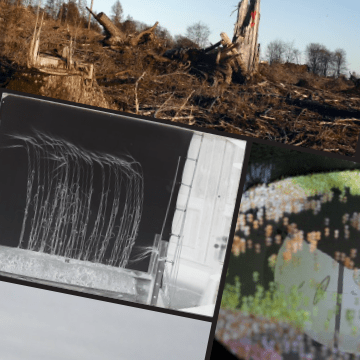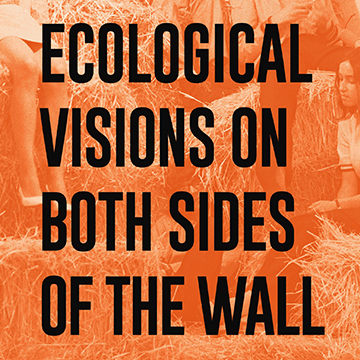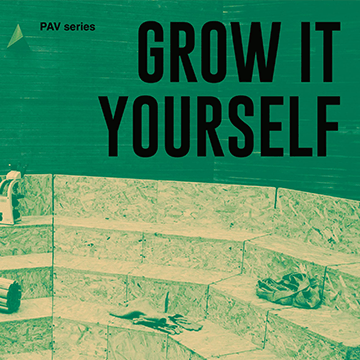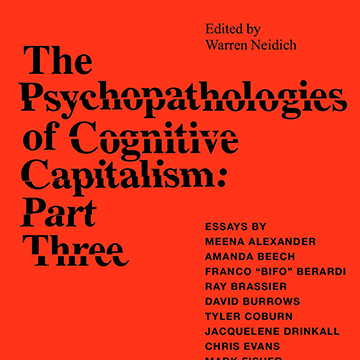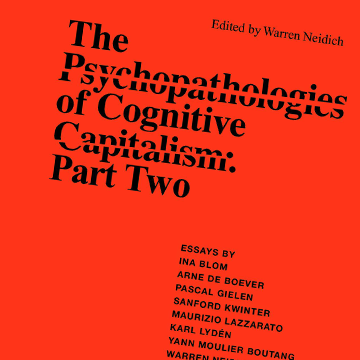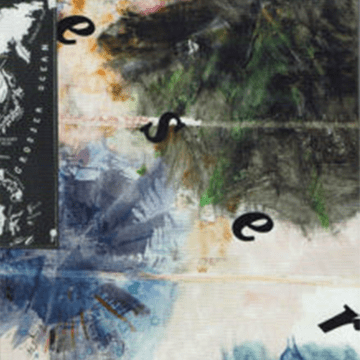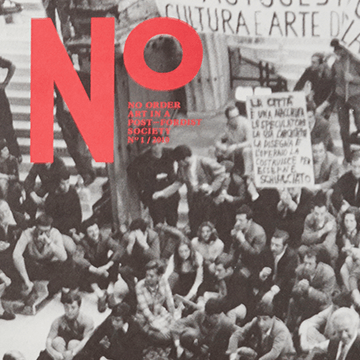Activist neuroaesthetics attempts to make the processes of digital dominion and governmentalization—which are becoming more and more prominent in late-stage cognitive capitalism (or neural capitalism)—opaque, visible, and known.
Tag: Capitalism
Contested Landscapes
Contested Landscapes is dedicated to different rural regions—their landscapes, their producers, and their work. The paths of the family of the artist Sandra Schäfer and those of the famous German photographer August Sander cross in the Westerwald, a rural area in Germany shaped by farming and mining.
Earthrise
There is no question that ecological ideas acquired a central role in contemporary episteme. In contrast, the heuristic function that these ideas can assume in the current polarisation is questionable: that which, over the last decade, has identified the environmental crisis with the (categorical and totalitarian) concept of the Anthropocene. Ecological discourse positioned itself inside historically situated trajectories that contributed to the transformation of aesthetical paradigms and political practices. In the scenario that 1968 opened up, the transversal nature of subjectivity allowed it to cover different fields, beginning with the tension between the logic of a unitary discourse and the creation of a multiplicity of possible worlds, between the molar and the molecular, the micro and the macro.
Grow it Yourself
There is no question that ecological ideas have by now acquired a central role in contemporary episteme. In contrast, the heuristic function that these ideas can assume in the current polarisation is questionable: that which, over the last decade, has identified the environmental crisis with the (categorical and totalitarian) concept of the Anthropocene. […] Nonetheless, if it is true that the concept of the Anthropocene has its origins in this “change in state” of human activities, the impression remains of being witness to a new form of universalizing anxiety (impatience) that is ready to re-establish and recapture the ecological discourse within a to- talitarian and centralizing narrative, in a sort of modernist, meta-narrative to whose liquidation the environmentalism of the 1960s and 1970s (with its movement-based and destituent nature) had contributed.
The Forest and The School / Where To Sit at the Dinner Table
Edited by the writer and visual artist Pedro Neves Marques, this book is a thorough anthology on Brazilian Antropofagia. It presents Antropofagia not simply as an aesthetic movement, based on acculturation or an hybridity exemplary of the tropics, but as a full scope South American cosmopolitics, defined by predation and the immanence of the enemy, by an humanity unbound from species, and a technology aimed at leisure.
The Psychopathologies of Cognitive Capitalism. Part Three
This third volume of The Psychopathologies of Cognitive Capitalism emerges from deliberations that took place during two different symposia. The first was a collaboration between Warren Neidich and Mark Fisher at the Department of Visual Culture at Goldsmiths College, titled The Psychopathologies of Cognitive Capitalism Part Three: The Cognitive Turn, and the second was an event organized in conjunction with the Goethe-Institut Los Angeles, Noise and the Possibility of a Future.
The Psychopathologies of Cognitive Capitalism. Part Two
The Psychopathologies of Cognitive Capitalism: Part Two is the second volume in a series which maps out the complex terrain of cognitive capitalism as an ontogeny in which its earlier phase has transitioned into a later phase that we are now beginning to experience. This volume collects together papers from a conference of the same name held at the Institute of Cultural Inquiry, Berlin, in the spring of 2013. The book contains three sections of which the first is titled Cognitive Capitalism: The Early Phase, the second The Psychopathologies of Cognitive Capitalism and its Responses, and the last The Cognitive Turn in Cognitive Capitalism.
The Psychopathologies of Cognitive Capitalism. Part One
This book collects the papers that were presented at "The Psychopathologies of Cognitive Capitalism: Part One" conference in Los Angeles in November 2012. The conference brought together an international array of philosophers, critical theorists, media theorists, art historians, architects, and artists to discuss the state of the mind and the brain under the conditions of cognitive capitalism, in which they have become the new focus of laboring. How have emancipatory politics, art and architecture, and education been refined by semiocapitalism? What might be the lasting, material ramifications of semiocapitalism on the mind and brain?
Eser
Eser is a comprehensive publication on Judith Raum’s works, installations and lecture performance texts from 2011 to 2014. It is also a theoretical reader and material collection on the semi-colonial advance of German entrepreneurs and bankers into the Ottoman Empire before World War I in connection with the construction of the Anatolian Railway. In this frame, the logic of capitalism and geopolitical interests connected the engineers’ tasks with less obvious efforts: to get a hold of Anatolian agriculture, archaeology and the working conditions in the country. Judith Raum’s work suggests that gestures and rhetoric of power and domination are the consequences of an economic principle that did not end with the colonial era and in fact persist today. Her works and texts take her research on site and in archives as a starting point, they exhibit an autonomous aesthetic dimension, however, and as such suggest an alternative approach to ‘artistic research’.
No Order
No Order editorial research focuses on the relationships between contemporary art systems and capitalism’s production processes. By means of an investigation into current creative industries – and their social, economic and semiotic assemblages – the contributions (essays, interviews and dialogues as well as artists’ projects) aim to deconstruct, analyse and intervene within the ambit of the procedures and forms of cognitive capitalism. It concentrates, in particular, on the phenomena of the ‘biennalisation’, ‘financialisation’ and ‘spectacularisation’ of the political, beginning with the control and distribution of forms of artistic education, production and display on a global scale.

